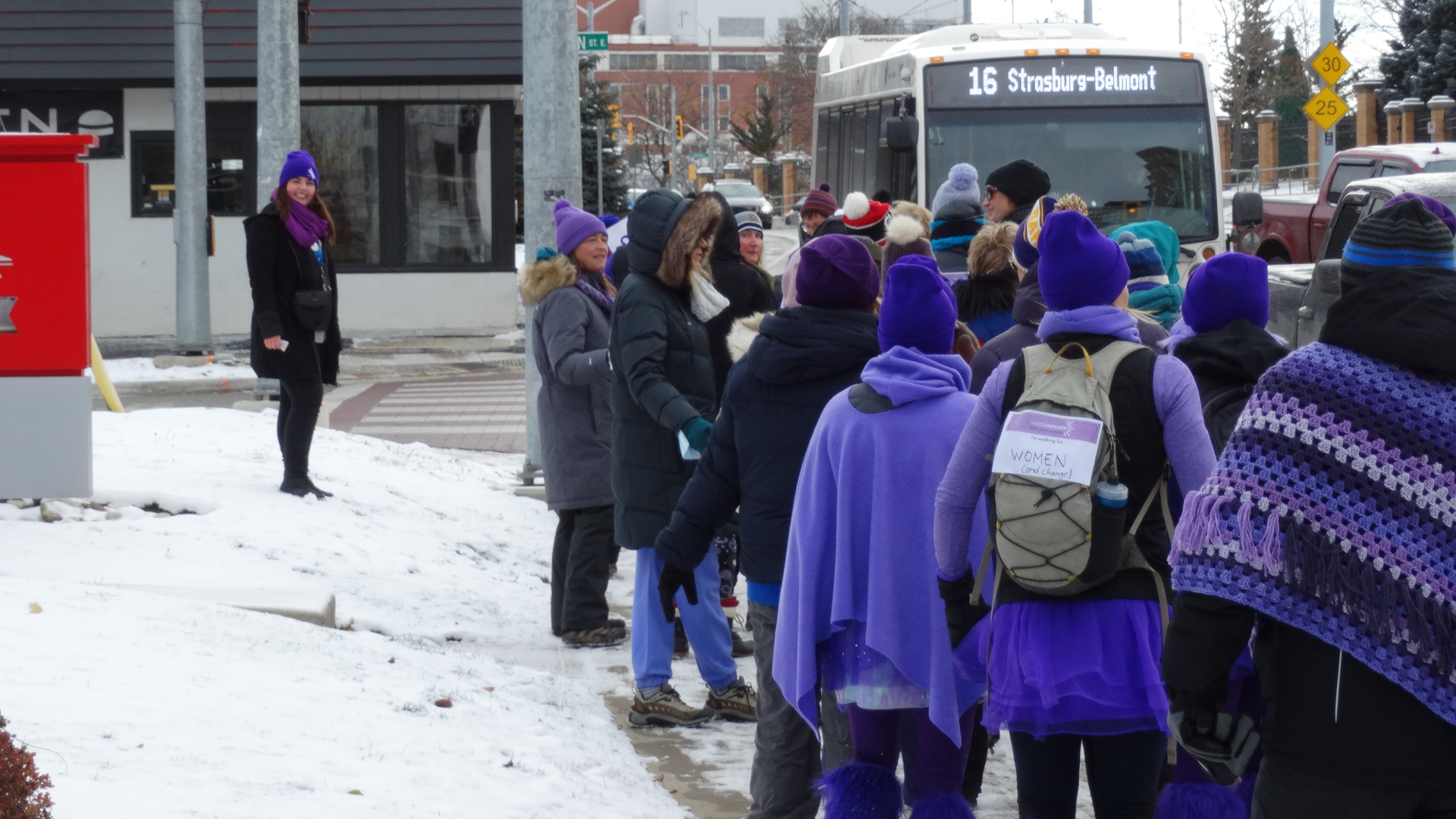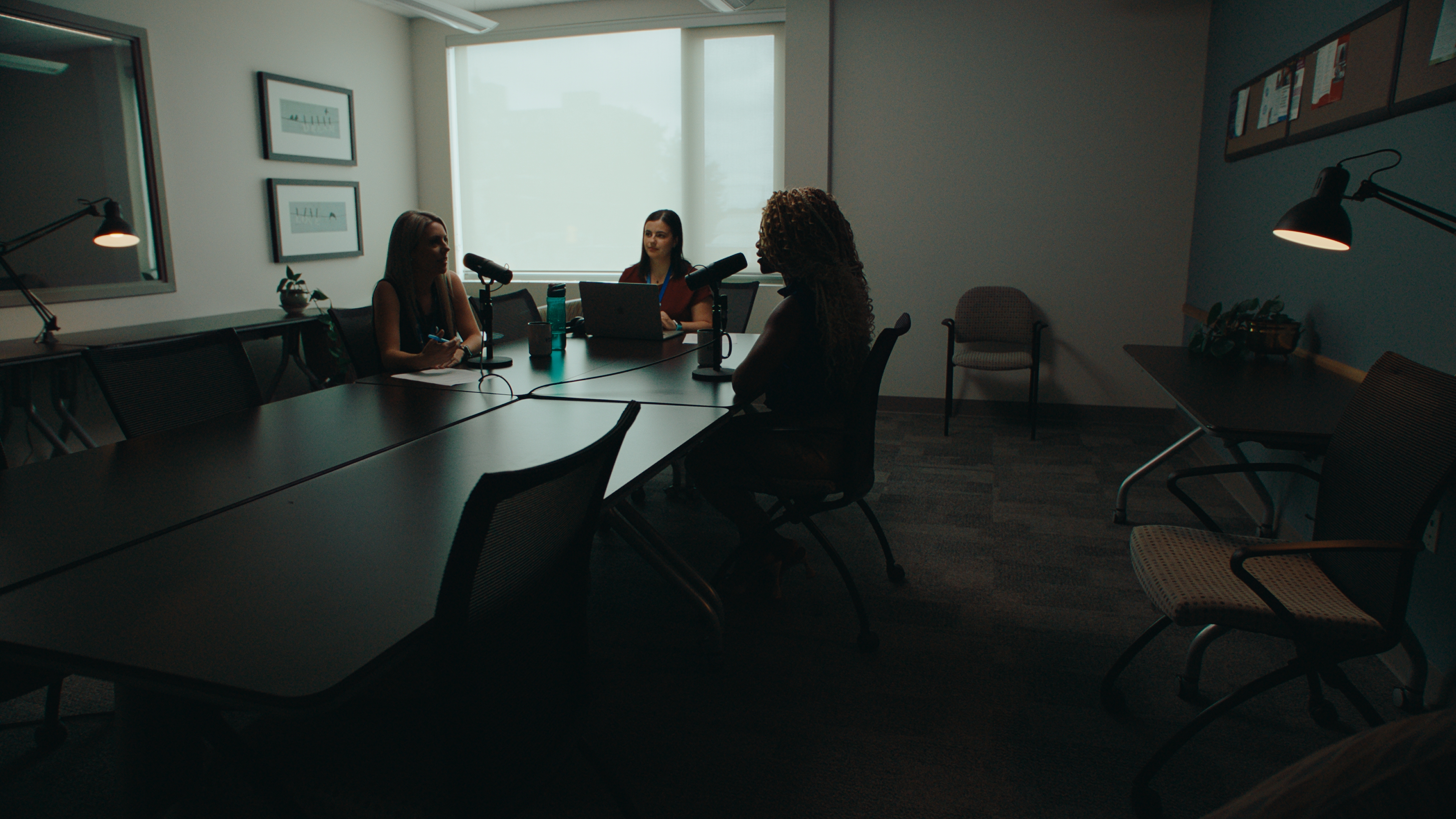We use cookies on this site to enhance your experience.
By selecting “Accept” and continuing to use this website, you consent to the use of cookies.
“Rates of domestic violence are staggering and are only increasing, and the best way to educate people is to talk about it,” says Lillie Proksch (BA ’19), the prevention and community engagement specialist at Women’s Crisis Services of Waterloo Region. “Domestic violence thrives in shame and secrecy and it won't get any better until people start talking about it and realizing the severity of the issue.”
I am currently the Prevention and Community Engagement Specialist at Women's Crisis Services of Waterloo Region. In this role, I oversee our Communications and Community Engagement initiatives, work with community partners to educate the public and produce the She Is Your Neighbour podcast. I think that non-traditional media has such influence, and I knew that my career would lead me to doing advocacy work through non-traditional media so I love the opportunity to work on She Is Your Neighbour.

Laurier prepared me in a lot of ways - I think the biggest thing that has supported me from my Laurier experience was learning the power of community to help empower initiatives. I was the President of Relay for Life Laurier for two years and the President of Stem Cell Club for three years and the community that came together for the events that we hosted was empowering. Working at Women's Crisis Services now, I use the community I have built through the organization to promote the work that we do which empowers the women and kids that we support daily.
A highlight of working on the podcast is definitely seeing the evolution of the project! When I started at the organization in September 2020, I helped launch the podcast and we went from being a hyper-local podcast to having guests from across the country and being featured in national news. We have over 16,000 downloads over 32 episodes currently, have hundreds of subscribers and are growing a following on social media, which is allowing us to expand into more prevention work.
Another highlight of working on the project has been connecting with local film company, Digital Sabbath, to produce a short documentary about the project. The doc has over 4,000 views to date and has been in film festivals in the US and Canada.
The most impactful thing about this project is that we have built a space that is empowering survivors to speak out about their experiences to help individuals who have experienced domestic violence. Rates of domestic violence are staggering and are only increasing, and the best way to educate people is to talk about it. Statistically, about 30% of people who experience domestic violence will call police but 70-85% will tell a family member or friend – this project is giving people the tools and resources to spot red flags, learn about support services in Waterloo Region and beyond and is helping people be better neighbours and loved ones to those who need support.

I have so many fond memories of my time at Laurier! I worked at the Hawk Shop in the Athletic Complex and met my best friend there; I learned a lot in my communications classes and loved having the opportunity to support the Laurier community through different clubs and activities.
I also loved the opportunity to dive deep into topics that I was passionate about – I got to take classes in the Communications department about Canadian policy that I still refer back to. I loved that I got to explore other faculties like Sociology and English courses which ultimately lead me to where I am today.
There are some huge misconceptions about domestic violence and people who have experienced it. One of the biggest misconceptions is that domestic violence is mostly physical. In some cases, physical violence is definitely present but most of the time it is accompanied by other types of violence as well. Coercive control, emotional abuse, financial abuse and isolation are also very common, and, in most cases, the impacts are more longer-lasting.
Another misconception is that women and gender-diverse individuals who experience violence are weak or broken – the people who I have met through our services are some of the strongest people I have ever met. Most people who stay in our emergency shelters are there because there is no other option and leaving is never an easy choice. There are so many factors that contribute to people leaving or not leaving and whatever choice an individual makes for themselves and their family is complex and individualized.
Domestic violence thrives in shame and secrecy and it won't get any better until people start talking about it and realizing the severity of the issue. Funding for shelters and other violence against women organizations has not increased in years despite rising inflation and it causes these organizations to have to fundraise to stay open – Women's Crisis Services fundraises over $1 million a year to keep all of our rooms and essential programming available. Prevention work, Music Therapy, parts of our Child and Youth programming and 32 of our 90 beds are all fundraised for.
If you are experiencing domestic violence in Waterloo Region, or are worried about a neighbour or loved one, Women’s Crisis Services can help. Call 519-742-5894 or 519-653-2422 today or chat with a social worker anonymously online at www.wcswr.org.